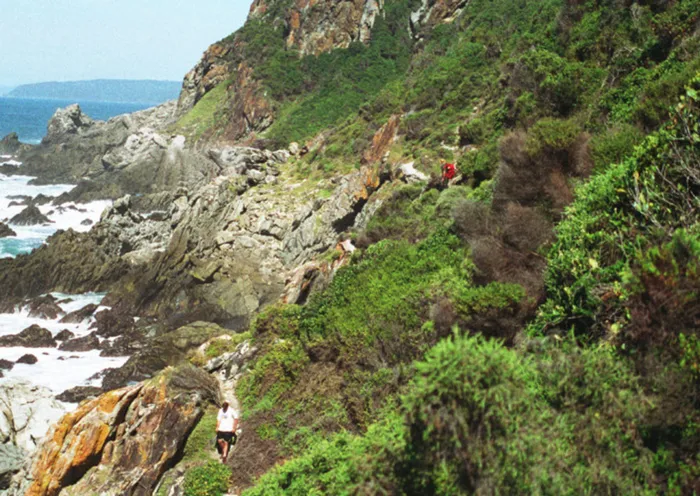Fishing ‘pilot project’ in protected area slammed

This undated photo released by PictureNET Africa shows hikers passing through the Tsitsikama National Park, South Africa, near the end of the Garden Route. The stretch of the ruggedly beautiful coast line is frequented by whales and dolphins and bordered by indigenous forests. (AP Photo/David Fleminger, PictureNET Africa) **NO SALES** This undated photo released by PictureNET Africa shows hikers passing through the Tsitsikama National Park, South Africa, near the end of the Garden Route. The stretch of the ruggedly beautiful coast line is frequented by whales and dolphins and bordered by indigenous forests. (AP Photo/David Fleminger, PictureNET Africa) **NO SALES**
Melanie Gosling
Environment Writer
THE decision to allow anglers to fish in the Tsitsikamma National Marine Protected Area from next week as a “pilot project” is procedurally unfair and contravenes the right to just administrative action.
This is the legal opinion of Plettenberg Bay attorney Perino Pama, who was asked by a local conservation group Ocean Research Conservation Africa to respond to the decision by SANParks and Environmental Affairs Minister Edna Molewa to allow local residents to fish in the marine park from Tuesday.
The authorities maintain allowing local anglers to fish would test draft regulations intended to allow Tsitsikamma residents the right to fish in certain areas of the marine park on a permanent basis. The public has until February 1 to comment on the draft regulations.
“There is no reason why the public participation process should be pre-empted, and effectively nullified, by starting a ‘pilot project’ before the public participation process has been completed,” Pama said.
It was “astonishing” that the authorities had already signed an agreement with local residents in this regard, creating the impression that Molewa had already made up her mind.
Pama said the Tsitsikamma National Marine Protected Area was the equivalent to the Kruger National Park, but for the protection of marine species.
“If a decision was taken to hunt in the Kruger National Park, that would cause an international outcry.”
Pama said it was clear the draft regulations were to allow for recreational fishing, not subsistence fishing, as anglers had to be in possession of a valid recreational angling permit. Many of South Africa’s fish stocks were in decline.
Asked to comment, Environmental Affairs spokesperson Zolile Nqayi agreed there would be impacts on fish stocks in the marine park if fishing were allowed, and catch-rates would decrease.
But measures had been put in place to reduce these impacts.
There would also be active monitoring of catches.
Nqayi said local residents maintained that fishing rights for “recreational, historical and cultural purposes” had been taken away from them 50 years ago without a public participation process.